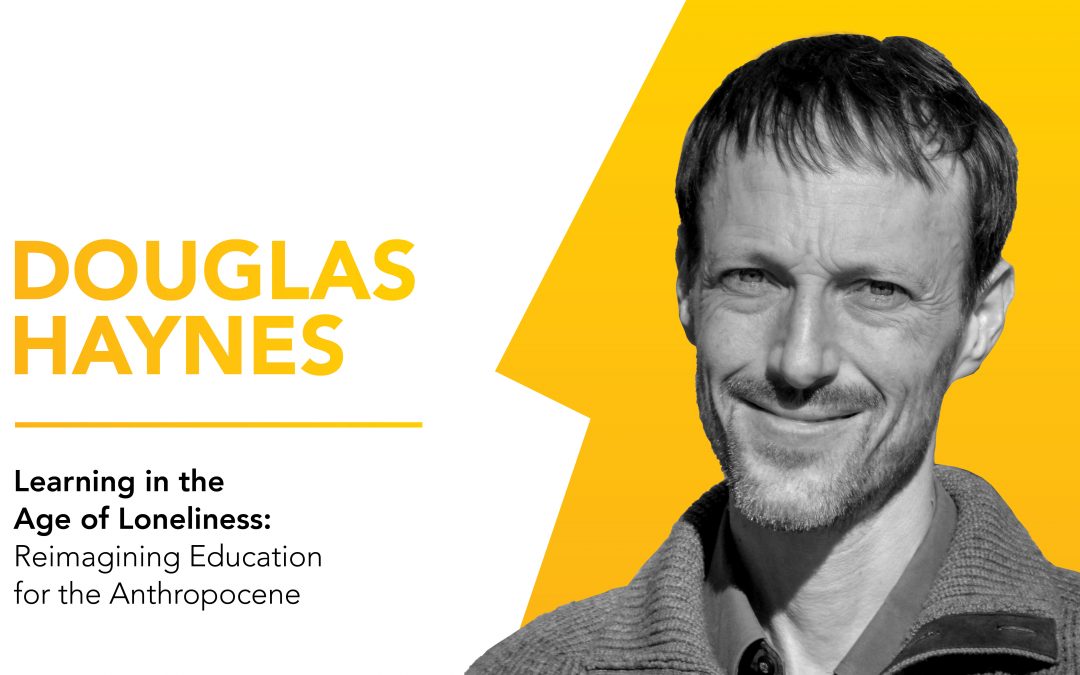As part of a prestigious University of Wisconsin System fellowship, UW Oshkosh English professor Douglas Haynes will focus this fall on the intersection of inequality and the ecological crisis, particularly in marginalized communities.

Douglas Haynes
“Continuous multitasking is a big part of working in academia, so this fellowship allows me a rare opportunity for extended reflection and concentration on developing one major project,” he said.
The fellowship at the Institute for Research in the Humanities (IRH) at UW-Madison provides Haynes with time to focus on a new book, Learning in the Age of Loneliness: Reimagining Education for the Anthropocene.
In conjunction with Hayne’s fellowship, UW-Madison and UW System will contribute $5,000 and $7,500 to UWO, respectively.
“I will be researching and writing a new narrative nonfiction book about innovative models for reimagining education that confront the converging ecological, equity and mental health crises,” he said. “These models center on place-based, experiential education, and Wisconsin has long been a leader in this kind of education.”
Wisconsin created the nation’s first school forests in 1928 and today is the only state in the country with an annual governor-proclaimed School Garden Day to celebrate the importance of garden- and outdoor-based education.
“On the other hand, Wisconsin also has some of the highest racial and economic educational inequalities in the United States, making it a microcosm of the equity challenges the country faces,” Haynes said.
Outdoor, place-based learning is an increasingly well-documented way to reduce achievement gaps.
“For my book, I will immerse myself in schools and communities that are addressing these challenges in transformative ways, as well as providing outdoor, ecological education that will not only help students confront the climate and mass extinction crises but also aid their mental and physical health. I write for a general, public audience, so by telling stories of groundbreaking pedagogies in action, I hope I can foster a broad conversation about how we can all help make healthier, more equitable, and more sustainable schools and communities,” he explained.
In a previous book, Every Day We Live Is the Future: Surviving in a City of Disasters, Haynes followed two Nicaraguan families’ struggles to get out of poverty in the face of the climate crisis.
 The institute, which was founded in 1959, brings together a community of scholars and writers from all over the country.
The institute, which was founded in 1959, brings together a community of scholars and writers from all over the country.
“As part of my fellowship, I will gather with this community weekly for seminars and informal discussions of fellows’ work. This kind of interdisciplinary exchange is an invaluable way to broaden one’s own work and contribute to evolving conversations in the humanities,” Haynes said.
Haynes, who joined the UWO faculty in 2008, teaches writing and environmental humanities, with a focus on creative nonfiction and poetry writing.
“I teach writing, so it’s essential that I actively write myself so I can share my own struggles and successes with my students,” he said. “It’s also essential that I keep developing new research strategies in the kinds of communities my students come from that I can share with them. Telling true stories about other people whose life circumstances may be different than one’s own also involves a lot of important ethical considerations, and this project will help me continue developing ways to teach students about how to approach these ethical issues. “
Anyone who has suggestions about schools doing innovative place-based/experiential education that Haynes should visit should contact him at haynesd@uwosh.edu.
Learn more:

